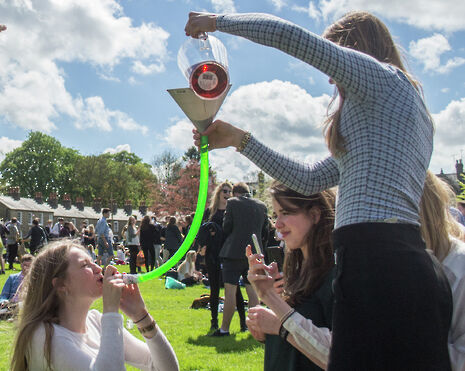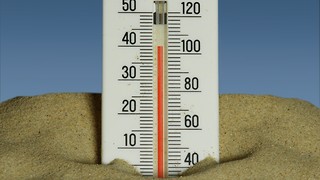The end result: exams aren’t everything
In her final column of term, Millie Paine tells us exam grades aren’t all that

By virtue of being a Cambridge student, the odds are favourable that you have always been pretty good at exams. With Cambridge dishing out some of the most challenging offers in the country, it’s entirely possible that you spent the majority of your time at sixth form chained to your desk, constantly repeating to yourself that mitochondria are the powerhouse of the cell. Even if you weren’t a biology student, you might have other such little-known facts up your sleeve.
So when results day came around and you found you’d made your potentially ridiculous offer, you (deservedly) congratulated yourself. Your entire family told you how proud they were of you, how successful you are. You got good exam results, and now you’re off to one of the best universities in the world. Your exam results were not only a source of pride, but the key to your future.
Consistently succeeding academically is a common scenario for almost all Cambridge students, so it’s easy to see how we’ve developed the mindset that doing well in exams equals success. Thus, your sense of self-worth often derives from the attainment of success. If you’re somebody to whom academic achievement comes fairly naturally, chances are you’ve consistently been defined by your series of A*s at GCSE and A-Level. As a result, it becomes all too easy to use academic achievement as a way of measuring your own success. With May Week finally here, it seems the perfect time to evaluate how the year has gone. It’s important, however, to resist the temptation to use exam results as a way of doing so.
Coming to Cambridge in October was a pretty daunting prospect. It’s a time old saying that university is the place where you truly find yourself and finally learn what it means to be an adult, and there’s a reason for this - it’s very accurate.
Within weeks I learned that I needed to eat fresh fruit and vegetables in order to feel vaguely alive, that the ever-growing pile of laundry in the corner of my room wasn’t going to do itself, and that the essay I produced on two hours’ sleep after a night spent in Cindie’s probably wasn’t going to be my best work. Everyone thinks they know how to survive living by themselves, but the truth is you never really learn until you’ve been thrown in at the deep end and forced to go it alone.
So of course, there are skills that you have to learn at university that cannot be measured by your class mark. But what about your degree? It is, after all, the reason you’re here in the first place (although it may not always feel that way). Your grades seem like an obvious first port of call in measuring how much you’ve achieved in this respect. But even then, they don’t, and can’t, tell the whole story.
The truth is, it’s pretty difficult to demonstrate a whole three terms’ worth of learning and development in one three hour exam. Exams test a lot of things - time management, memory, the ability to work under pressure, and whether you’ve listened to the examiner correctly to know which papers are supposed to be treasury-tagged to which.
But even academically speaking there are a lot of things that can’t be determined by exams. Exams don’t necessarily measure your intellectual interest, or the fact that despite the complaining and the moaning yaks posted to Facebook and Twitter after a 6 hour library stint, deep down you love your subject and what you do. Otherwise why would you be here at all?
There are so many other ways to determine how far you’ve come this year other than your grade. Perhaps you’ve met a really great group of friends, maybe you’ve discovered sporting, acting, debating or writing talent you never knew you had, or you might simply have won your battle against the laundry pile before your mum came to visit.
The sooner we realise that our class marks and exam results do very little in defining our worth and our intelligence, the easier it will be to broaden our idea of what it is to be successful. In such a competitive academic environment, this is easier said than done. But rather than focusing on what number you have on a piece of paper at the end of the year, think about the bigger picture: yes, exams are important, but being a well-rounded and developed person is far more so.
 Features / Meet the Cambridge students whose names live up to their degree9 September 2025
Features / Meet the Cambridge students whose names live up to their degree9 September 2025 News / Trinity Street to close for month-long roadworks13 September 2025
News / Trinity Street to close for month-long roadworks13 September 2025 News / New NHS platform causes security concerns in Cambridge12 September 2025
News / New NHS platform causes security concerns in Cambridge12 September 2025 Comment / Cambridge South is right to be ambitious13 September 2025
Comment / Cambridge South is right to be ambitious13 September 2025 News / Tompkins Table 2025: Trinity widens gap on Christ’s19 August 2025
News / Tompkins Table 2025: Trinity widens gap on Christ’s19 August 2025










